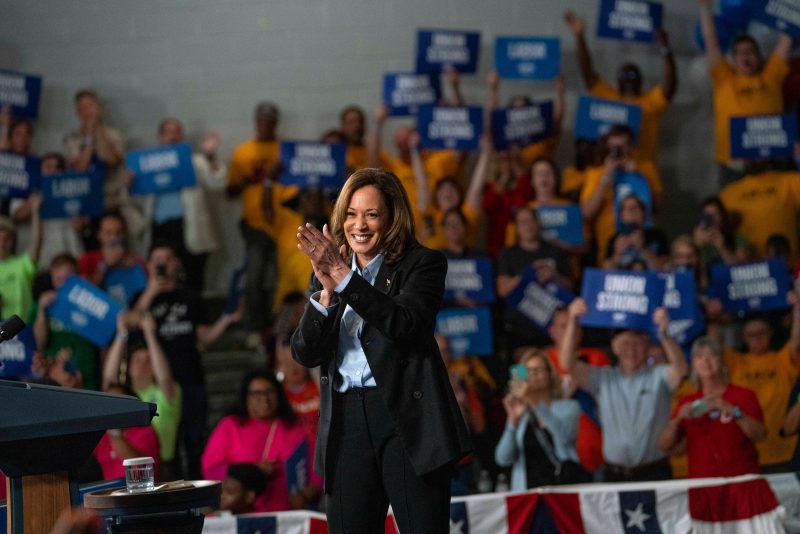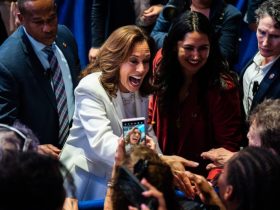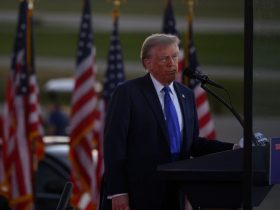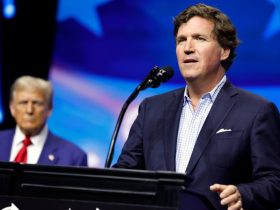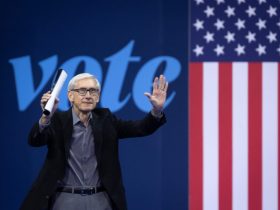Vice President Kamala Harris wants to go another debate round with former president Donald Trump.
The Democrat’s campaign plans to announce after Tuesday’s debate a desire for a second meetup with the GOP nominee before the November elections, according to a person familiar with the plan who spoke on the condition of anonymity to describe internal deliberations. The decision to request another debate was made before both candidates took the stage Tuesday night.
Trump has previously called for three debates with Harris, but it was not immediately clear whether he would agree to a second meeting after Tuesday’s clash in Philadelphia. Chris LaCivita, a Trump campaign adviser, responded to the news with a brief statement. “Of course,” he wrote. “They need clean up.”
The Harris campaign is expected to continue to push for the candidates’ microphones to be live during the next meeting — a position that Trump’s campaign refused to agree to for Tuesday’s debate.
The debate negotiations have been fraught since both the major parties agreed to abandon the system of three presidential meetings overseen by the nonpartisan Commission on Presidential Debates. President Joe Biden, when he was leading the Democratic ticket, proposed a June debate on CNN and Tuesday’s debate on ABC, and Trump quickly agreed.
But after a disastrous June debate performance resulted in Harris taking over Biden’s campaign, Trump initially indicated that the debate planned for Tuesday on ABC had been “terminated.” “I’ll see her September 4th, or I won’t see her at all,” he posted on social media on Aug. 3.
Nine days later, he proposed three debates, on Sept. 4, Sept. 10 and Sept. 25. Harris responded by saying she would talk about future debates only after Trump and her met on Sept. 10. Trump opted to do a town hall with Fox News Host Sean Hannity on Sept. 4 instead, and agreed to the Tuesday debate.
The Harris decision is driven by the campaign’s all-hands effort to give her more face time with key undecided and unlikely voters, many of whom still are far less familiar with her candidacy than that of Trump. While the Harris campaign has a much larger field operation and is spending far more money on advertising, her strategists have been focused in recent weeks on introducing her and her plans to voters, casting their candidate as “A New Way Forward,” despite her current White House role.
Since the last night of the Democratic National Convention in August, the Harris campaign has spent $101 million on television, radio and digital ads, according to AdImpact, compared to $47 million spent by the Trump campaign. When outside groups focused on the presidential election are included, Democrats have outspent Republicans by a margin $186 million to $138 million, according to AdImpact.
Trump has tried to overcome his disadvantage by spending far more time in interviews, including the Fox News town hall and multiple podcast interviews.
Network executives have proposed a wide array of possible dates for future meetings of Harris and Trump, giving both campaigns multiple options for another setting.
Both campaigns have agreed to an Oct. 1 debate hosted by CBS in New York City between both major party vice-presidential nominees, Minnesota Gov. Tim Walz (D) and Sen. JD Vance (R-Ohio). The Harris campaign rejected the Trump campaign’s proposal for a second meeting between Walz and Vance on Sept. 18.

